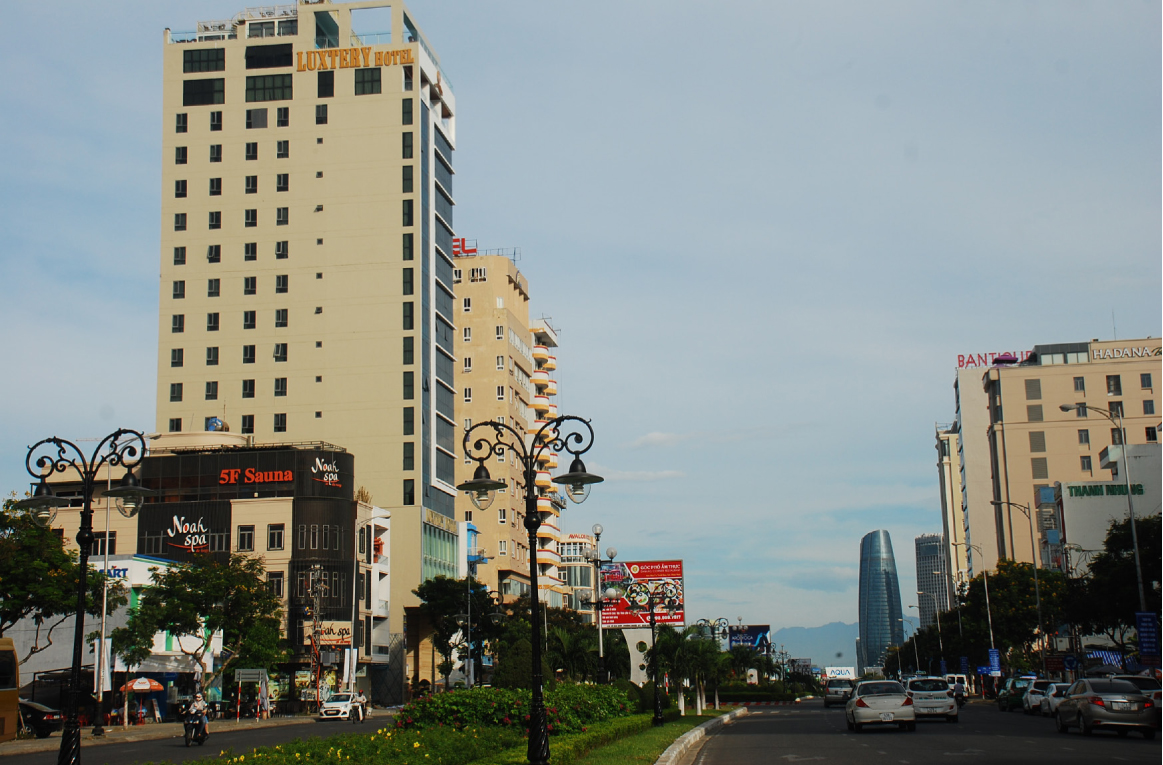Stronger measures needed to handle billboards in foreign languages
Prime Minister Nguyen Xuan Phuc recently signed Directive 17/CT-TTg on strengthening the State’s management of advertising activities. In particular, the authorities of localities nationwide are being asked to focus on directing and correcting the presentation of foreign languages on billboards and signboards.
 |
| Many advertising boards in foreign languages on a local street |
Like many other localities across the country, over recent years Da Nang has seen a boom in billboards featuring only foreign languages and/or inappropriate Vietnamese language text to catch the public’s attention. This violates the national Advertisement Law and has brought about a negative local reaction, and it reflects a lack of respect for the national tongue and culture.
The Advertisement Law, launched last year, stipulates that the advertisment content, whether spoken or written, must be in Vietnamese. Foreign languages can only be adopted when representing foreign brands, trademarks, proper names or internationalised words which can’t be replaced with Vietnamese. In such cases, the signs must use both Vietnamese and a foreign language, and the foreign words must be no more than three-fourths the font size of the Vietnamese words, and placed beneath the Vietnamese words.
However, in reality, many local hotels, restaurants, shops and service providers have displayed signs which feature foreign words only, or both Vietnamese and foreign languages, but the Vietnamese words are dominated by the foreign ones in size, colour and position. Also, it is common to see some signs featuring a combination of both Vietnamese and English words, including ‘Lo Lem Shop’, ‘Spa Xinh Xinh’, ‘Ba Hung Bakery’ and Tram Huong Soo Gong Jin’.
Along a section of Tran Phu between its intersections of Tran Quoc Toan and Nguyen Van Linh in Hai Chau District, there are 18 service providers now displaying their billboards in foreign languages only. It is common to see such billboards written as ‘Big Bang’, ‘Prosecco Ristorante’, ‘Hot & Cold’, ‘The Coffee House’ and ‘Alice’. Similarly, there are 17 billboards in the Chinese language along Vo Nguyen Giap coastal route in Ngu Hanh Son District. Advertising boards in foreign languages, especially South Korean, are being seen along some coastal routes in Son Tra District.
Shop signs on streets where few foreigners live or frequent are also often written in foreign languages, which baffles many locals completely. Local man Nguyen Van Mien from Hai Chau District’s Thanh Binh Ward complained about the abuse of the English language on billboards, so he cannot understand words on these advertising signs. The man would like to see more billboards in Vietnamese because this helps to evoke the beloved images of the Fatherland.
Mr Tran Trung Sang, a lecturer from the city’s University of Education, explained that the current global integration is leading to more mutual exchanges of culture and languages. Therefore, there has been an explosion of billboards in foreign languages in Da Nang and in other localities. However, he raised his deep concerning about the abuse of foreign languages rising at an alarming rate. This problem has adversely affected the practice of the Vietnamese language in daily life, and the national cultural identity.